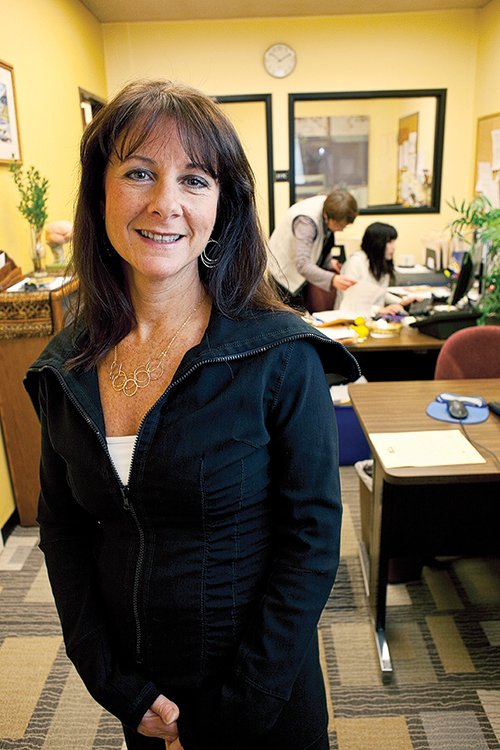Students often have a hard time imagining their professors outside of the classroom, and many assume that teaching is their only gig. But the truth is, a lot of professors are engaged in a variety of pursuits beyond the classes they teach.
Professor profile: Leslie Hammer

Students often have a hard time imagining their professors outside of the classroom, and many assume that teaching is their only gig. But the truth is, a lot of professors are engaged in a variety of pursuits beyond the classes they teach.
Leslie Hammer, a professor of industrial/occupational psychology, has been at Portland State for 22 years.
In addition to teaching, Hammer is the director of the Occupational Health Psychology program, which is a graduate training program in the Department of Psychology.
“OHP applies psychology to understanding ways of reducing occupational stress and injuries and improving well-being on the job,” Hammer said.
PSU’s OHP program has been around for about 13 years and is funded by the National Institute of Occupational Safety and Health. The program is one of few in the area, since it is still a fairly new field of psychology.
Aside from OHP, Hammer is a part of Work, Family & Health Network, where she leads the Center for Work-Family Stress, Safety and Health. She explained that the WFHN is a heavily funded research network designed to study work-family practices and policies that impact the well-being of workers and their families.
Hammer has developed a study that focuses on family support and trains supervisors to successfully understand the importance of work-family issues.
“I’m now extending this research to better understand how supervisors can support veterans reintegrating into the civilian workplace,” Hammer said. Last month, it was announced that Hammer has received a $5 million grant to carry out this research.
Trained as an industrial/organizational psychologist, Hammer was attracted to PSU because of the applied psychology doctoral program the university was starting.
In the field of psychology, it’s very rare to have applied research, Hammer explained, but the PSU program appeared to value applied research and research in the community, something she also places great value on.
“I was very interested in the area of work and family,” Hammer said. “It was a newly developing field at the time, and basically I wanted to come and do applied research.”
An article published at that time regarding women and their role in work and family had caused an uproar.
“The issues were being pinned on women, primarily, where there was nothing that was being done in organizations to support working families. So I felt there needed to be research better understanding that organizations can support working families,” Hammer said. “That was when I decided I wanted to go into academia, because I wanted to be one of those people to do that research.”







